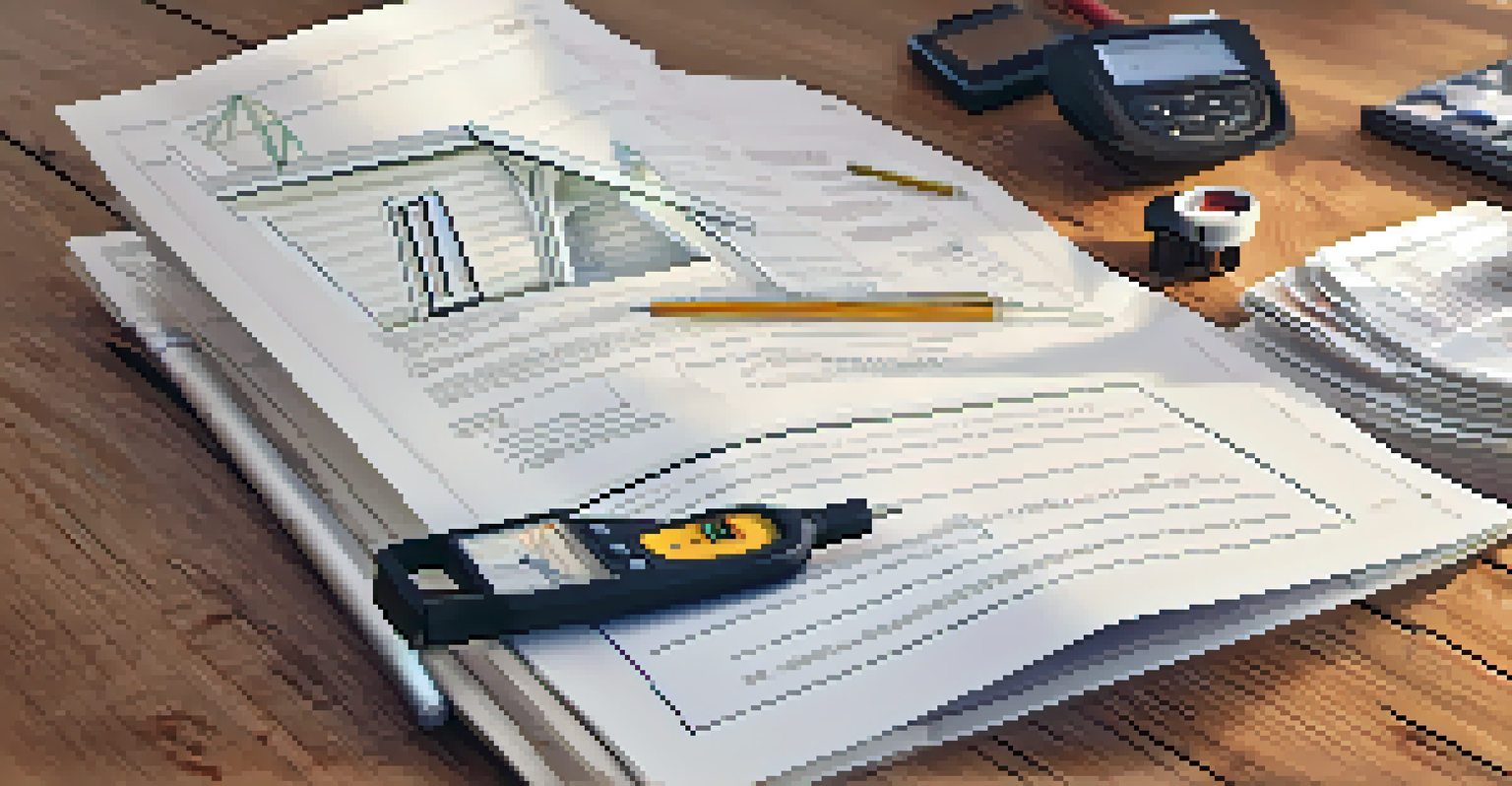How Property Inspections Help in Risk Assessment

What Are Property Inspections and Their Purpose?
Property inspections are thorough evaluations of a property's condition, typically conducted by a professional inspector. These inspections assess various aspects, including structural integrity, plumbing, electrical systems, and more. The primary purpose is to identify any potential issues or risks that could affect the property's value and safety.
An investment in knowledge always pays the best interest.
By uncovering hidden problems, property inspections help buyers and owners make informed decisions. Whether you're purchasing a new home or managing an investment property, understanding the state of the property is essential. This process ensures that you’re not caught off guard by unexpected repairs or hazards down the line.
Beyond just identifying problems, property inspections also provide a roadmap for necessary maintenance and upgrades. This proactive approach can save property owners money and stress in the long run, as they can address issues before they escalate.
Identifying Structural Risks Before They Escalate
One of the key benefits of property inspections is their ability to detect structural risks early. Inspectors look for signs of foundation issues, roof damage, or water intrusion that could lead to significant problems if left unchecked. By identifying these risks upfront, property owners can take corrective action before disasters occur.

For example, a small crack in a foundation might seem minor at first, but it can indicate deeper issues with soil stability or drainage. An inspector’s trained eye can spot these warning signs, allowing for timely interventions. This can ultimately protect the property’s value and ensure the safety of its occupants.
Importance of Property Inspections
Property inspections are essential for identifying hidden issues that could impact a property's value and safety.
Moreover, understanding the structural integrity of a property can aid in risk assessment for insurance purposes. When insurers see that a property has been well-maintained and regularly inspected, they may offer better rates, knowing the risks are managed effectively.
Evaluating Environmental Hazards in Properties
Environmental hazards, such as mold, radon, or lead paint, can pose significant risks to health and safety. A comprehensive property inspection often includes tests for these hazards, providing valuable insights for potential buyers or current owners. Identifying these risks early can prevent serious health issues for occupants.
The bitterness of poor quality remains long after the sweetness of low price is forgotten.
For instance, mold growth is often hidden behind walls or under flooring, making it difficult to detect without a thorough inspection. If left unaddressed, mold can lead to respiratory issues and other health problems. By conducting an inspection, property owners can ensure a safe living environment.
Furthermore, knowledge of environmental hazards can influence a buyer's decision and negotiation process. If an inspection reveals potential risks, buyers may request remediation efforts before closing the deal, ensuring they’re not inheriting someone else's problems.
The Financial Impact of Property Inspections
Investing in property inspections can have a substantial financial impact, both short-term and long-term. While there’s an upfront cost for inspections, the potential savings from identifying issues before they become major repairs far outweigh this investment. For example, fixing a small plumbing leak early can prevent costly water damage later.
Additionally, properties that have undergone thorough inspections often see better resale values. Buyers are more inclined to invest in properties with clear inspection reports indicating their good condition. This not only enhances the property's marketability but also instills confidence in potential buyers.
Financial Benefits of Inspections
Investing in property inspections can save money by preventing costly repairs and enhancing resale value.
Moreover, by addressing issues highlighted in inspection reports, property owners can avoid sudden repair costs that could disrupt their financial planning. This proactive approach ultimately leads to more stable and predictable property management.
Enhancing Buyer Confidence Through Inspections
For homebuyers, property inspections are a vital tool to boost confidence in their investment. Knowing that a professional has evaluated the property helps buyers feel secure about their decision. This peace of mind can make the home-buying process less stressful and more enjoyable.
When buyers receive a detailed inspection report, they can better understand the property's strengths and weaknesses. This transparency fosters trust between buyers and sellers, paving the way for smoother negotiations. Buyers can ask for repairs or adjustments to the purchase price based on the findings, ensuring they’re making a sound investment.
Ultimately, when buyers feel informed and confident, they’re more likely to follow through with their purchase. This can lead to quicker sales and a more efficient real estate market overall.
Risk Assessment for Property Investors
For property investors, conducting thorough inspections is crucial in assessing risk and determining potential returns. Investors need to understand any existing issues that could affect their profits before purchasing a property. Inspections provide a clear picture of maintenance needs and potential repairs, allowing investors to make informed decisions.
Additionally, understanding the condition of a property helps investors set realistic budgets and timelines for renovations. For instance, if an inspection reveals outdated electrical systems, the investor can plan for upgrades that will enhance safety and increase property value over time. This foresight is essential for maximizing investment returns.
Technology Enhances Inspections
Advancements like drones and thermal imaging improve the accuracy and efficiency of property inspections.
Moreover, a well-documented inspection history can enhance an investor's credibility. When presenting properties to potential buyers or renters, having a clean inspection report can be a powerful selling point, showcasing the investor's commitment to maintaining the property.
The Role of Technology in Property Inspections
As technology continues to evolve, so does the property inspection process. Tools like drones, thermal imaging cameras, and moisture meters allow inspectors to assess properties more thoroughly and efficiently. These advancements lead to more accurate risk assessments and can uncover issues that traditional methods might miss.
For example, drones can inspect roofs without the need for scaffolding or ladders, reducing safety risks for inspectors. Similarly, thermal imaging can identify temperature variations that indicate insulation problems or hidden leaks. Incorporating technology not only enhances the inspection process but also provides clients with detailed reports and visuals to understand property conditions better.

Embracing technology in property inspections is a win-win for everyone involved. Buyers and sellers benefit from clearer insights into property conditions, while inspectors can work more efficiently and safely.